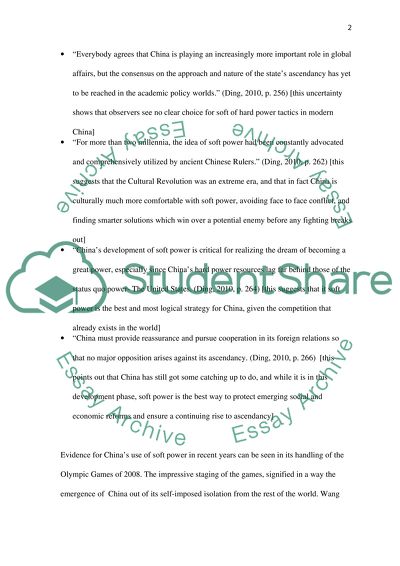Cite this document
(“The relation of soft power and hard power in China and/or East Asian Essay”, n.d.)
Retrieved from https://studentshare.org/politics/1421291-what-is-the-relation-of-soft-power-and-hard-power
Retrieved from https://studentshare.org/politics/1421291-what-is-the-relation-of-soft-power-and-hard-power
(The Relation of Soft Power and Hard Power in China and/Or East Asian Essay)
https://studentshare.org/politics/1421291-what-is-the-relation-of-soft-power-and-hard-power.
https://studentshare.org/politics/1421291-what-is-the-relation-of-soft-power-and-hard-power.
“The Relation of Soft Power and Hard Power in China and/Or East Asian Essay”, n.d. https://studentshare.org/politics/1421291-what-is-the-relation-of-soft-power-and-hard-power.


